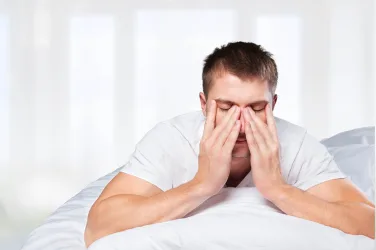Tackling a tricky issue—without surgery
 “You’ve had babies, so you’re going to have mommy leaks. That’s just the way it will be!” Your mom or grandmother has told you that, hasn’t she? After you’ve had a baby, you’re going to have urine leaking when you laugh or sneeze, and you just have to live with it unless you want to have surgery, right? Wrong! Urine leaking is common, but it’s NOT normal!
“You’ve had babies, so you’re going to have mommy leaks. That’s just the way it will be!” Your mom or grandmother has told you that, hasn’t she? After you’ve had a baby, you’re going to have urine leaking when you laugh or sneeze, and you just have to live with it unless you want to have surgery, right? Wrong! Urine leaking is common, but it’s NOT normal!
Stress urinary incontinence—the leaking of urine with increased pressure in your abdomen—such as with laughing, sneezing or even lifting or carrying items, is the most common form of incontinence. It is estimated that up to 50 percent of women suffer from this embarrassing condition. Its most common cause is weakness in the pelvic floor muscles caused by childbirth, being overweight, and repetitive stress (such as chronic cough or high impact exercise).
There’s a good chance you have been told to do Kegels (squeezing the pelvic floor muscles as if you’re trying to stop urine from coming out) to help alleviate the problem. But there’s also a good chance that Kegels haven’t fixed the problem. Kegels don’t work on their own because the pelvic floor muscles don’t work by themselves. You leak urine when you’re moving, when you lift or carry objects, or sneeze—not when you’re sitting still. Therefore it’s important that you strengthen and train those muscles in the same way you actually use them. Your pelvic floor muscles work with your abdominal and hip muscles. They also need to be integrated into your daily movements. And here’s an added twist: your pelvic floor muscles could actually be too tight—not too weak! If you’ve been squeezing your muscles trying not to leak, your muscles can be shortened over time, and then cannot contract and relax properly to respond to your daily life.
So how do you get help? Physical therapists trained in the pelvic floor can help! They will evaluate strength, mobility, coordination, and how the pelvic floor works with the surrounding hip and abdominal muscles. The treatment includes retraining these muscles by themselves and with the other muscles around them. They also will teach you how to perform your daily activities in a better way without leaking urine and to minimize any pain complaints. You also will receive an individualized program of exercises to do at home. Strengthening and retraining muscles takes time; however, for many women, a non-surgical solution to urinary incontinence IS worth the time.
Valerie L Bobb PT, DPT, WCS, ATC
Specialist in Women’s and Men’s Health
Director, Women’s and Men’s Health Program
Baylor Institute for Rehabilitation, Dallas, TX
www.baylorhealth.edu/RehabOutpatient
Baylor Rehab has more than 60 outpatient clinics throughout North Texas. Call 888-7-BAYLOR to find which ones have therapists specifically trained in Women’s and Men’s Health issues.









